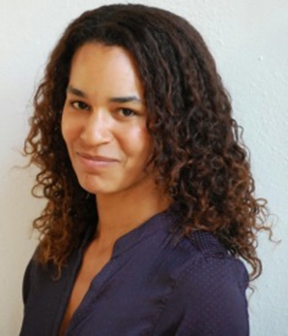NSF awardee seeks to understand relationship between learning and brain development
Dr. Catherine Hartley, an assistant professor of psychology in psychiatry in the Sackler Institute for Developmental Psychobiology at Weill Cornell Medicine, has received the Faculty Early Career Development Award from the National Science Foundation.

Dr. Catherine Hartley. Photo credit: Stephen Sherrill
The foundation, an independent federal agency that supports fundamental research and education across all fields of science and engineering, awards five-year grants each year to junior faculty who most effectively integrate research and education within the context of their organization's mission. Dr. Hartley will receive nearly $650,000 over the next five years to investigate developmental changes from late childhood through adulthood in how individuals learn about positive and negative experiences and how this learning shapes their decision-making.
"This award is an incredible honor," Dr. Hartley said. "I am very excited about this research — and when I got the phone call from the program director notifying me of the award, it was truly gratifying to hear that the NSF is also enthusiastic about my work and its future potential."
Dr. Hartley's early research, training under Dr. Elizabeth Phelps at New York University, focused on how and why people learn differently about negative events. In recent years, her research program has expanded to better understand how learning changes across development. Dr. Hartley credits her strong female mentors — including Dr. BJ Casey, director of the Sackler Institute for Developmental Psychobiology and a professor of psychology in psychiatry and in neuroscience at Weill Cornell Medicine — with shaping her own development as a scientist.
With her grant, Dr. Hartley will study how developmental changes in the brain during the transition through adolescence alter the evaluation of positive and negative experiences and shape risky or impulsive decision-making. She will have 110 children, adolescents and young adults, ages 10 to 22, complete tasks in which they make choices that have positive and negative outcomes. Dr. Hartley will apply computational models to their choices and their brain data in order to quantify age-related changes in learning, and their relation to brain development. She hopes this research can shed light on how learning relates to the changes in both brain and behavior during development.
As part of the foundation award, Dr. Hartley will collaborate with the New York Hall of Science in Queens and mentor a group of teens who take part in the Science Career Ladder program there. The students will be invited to work within Dr. Hartley's lab at the Sackler Institute to learn more about neuroscience and psychology, her research, and how to pursue a career in science.
"Being able to work with and mentor students" Dr. Hartley said, "may enable me to shape young minds by immersing them in science."
